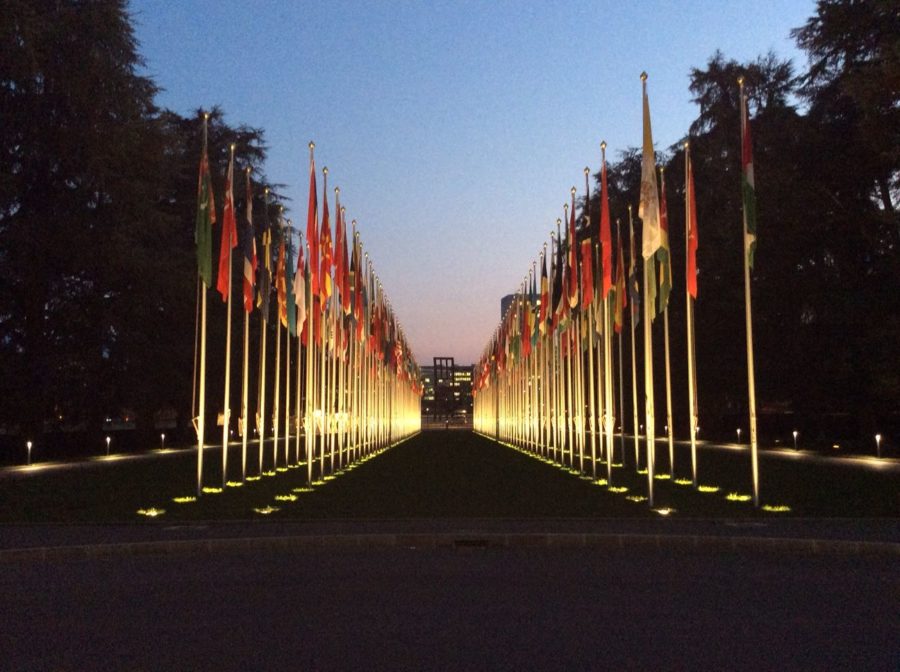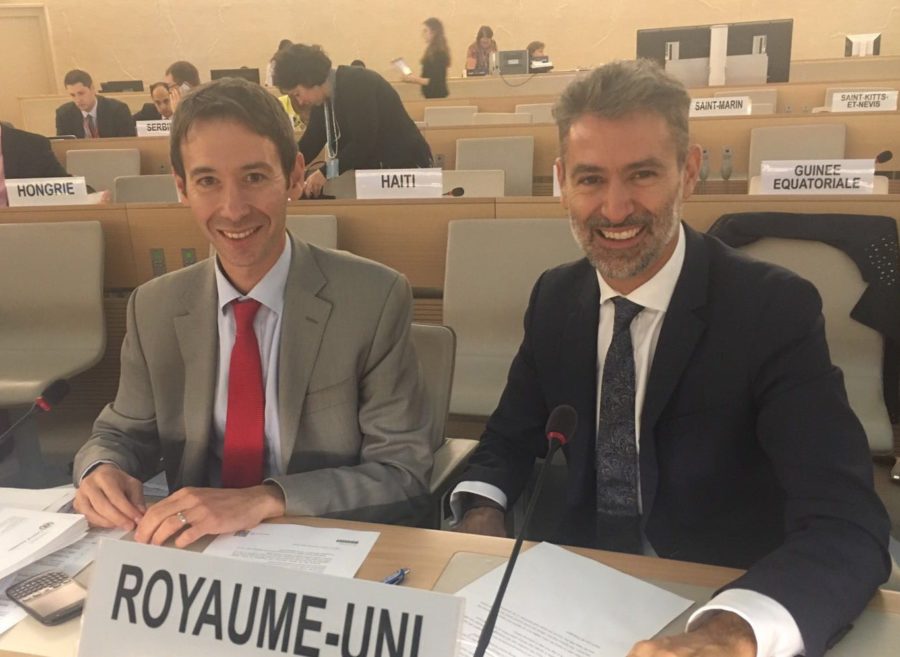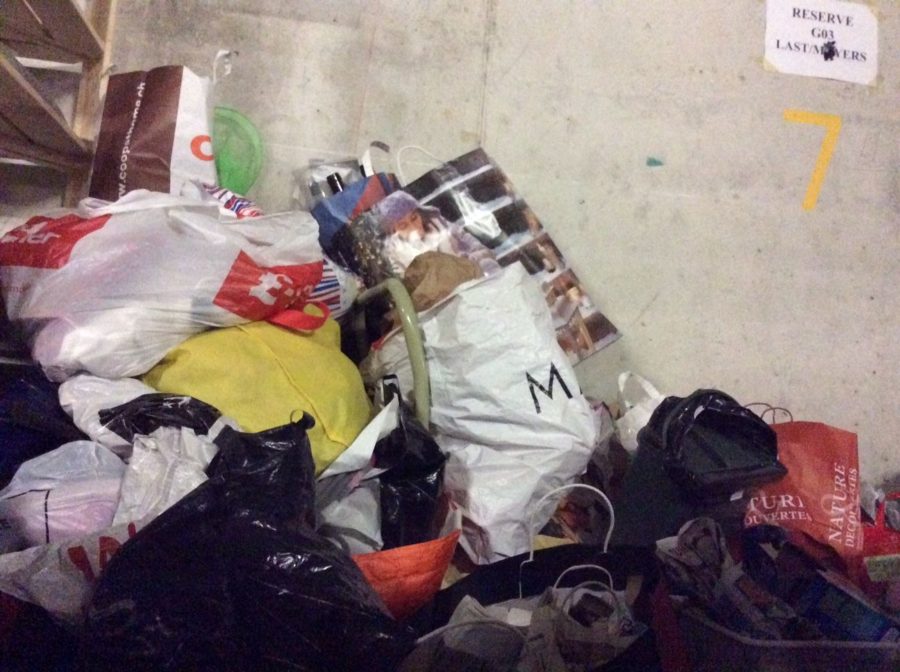5th October 2016 Geneva, Switzerland
Climbing Up The Walls

The physical experience of going through a Council session feels rather like having your head banged against a wall. It’s nice when it stops, but otherwise not particularly enjoyable. So there was a sense of delirium in the air when we headed out of the doors at a reasonable time last Friday evening. Three weeks of being confined to windowless UN meeting rooms tends to provoke a sense of collective cabin fever and after a spate of late finishes to Council sessions, I’m sure I wasn’t alone in fearing the worst. I’d come prepared with some water and enough packets of Haribo to keep me on a sugar high until the early hours, which were enjoyable, if not altogether necessary.
One of the last things that happened before we headed for the exit was the most important. The Council atmosphere is increasingly laced with paranoia, and a misjudged word can send the rumour mill spinning wildly. During the session there’s been plenty of fretting over whether anyone would challenge the appointment of the new Independent Expert to combat violence and discrimination based on sexual orientation and gender identity. The creation of the new expert in June was a massive step forward, but this wouldn’t mean much without someone appointed to the task. Happily, this passed off without major incident and the excellent Vitit Muntarbhorn will serve as the Council’s first Expert on this issue. I wish him well.
There was plenty else to show from the session. A new Commission of Inquiry on Burundi will keep the spotlight on an extremely worrying situation. UN experts have reported a range of serious human rights violations which seem to implicate the highest levels of government and which have been accompanied by a disturbing trend of ethnically divisive rhetoric. There is a clear risk that the situation may spiral out of control and it is right that the Council took firm action. Regrettably, among the Council’s African members only Ghana supported the new Commission, with many favouring regional solidarity over the protection of Burundi’s civilians.
On Yemen, the Council managed to reach agreement between those who supported a new free-standing investigation by the Office of the High Commissioner for Human Rights and those who wanted Yemen’s own human rights Commission to carry on documenting violations. The compromise was that the High Commissioner’s Office will provide greater support to the Yemeni Commission but will also have an enhanced role in carrying out its own investigations and reporting these back to the Council. This was an important step forward and let’s hope this proves an effective way of bringing down the number of victims of violations over the year ahead.
The Council also found agreement on the DRC after much discussion between the EU and the African Group. The African-led resolution was worded mildly given the recent killings of civilians and the strong warnings by High Commissioner Zeid, though EU pressure made sure that the DRC will remain in the Council’s focus. It will be essential for the Council to respond rapidly if the situation deteriorates further.
The three resolutions which I and my British colleagues were running were also adopted. The resolution to strengthen the role of the Council’s Special Rapporteur on Contemporary forms of Slavery got the highest level of support from co-sponsors to date and will enable the Rapporteur to keep engaging with states and victims of slavery to work towards an end to this appalling scourge. The resolution on Somalia renewed the Independent Expert on the country and provides a range of recommendations to Somalia to improve the situation. And the UK-led resolution on Syria also passed once more. With the situation in Syria as bad as ever, the resolution condemned the regime’s offensive on eastern Aleppo and demanded a restoration to the cessation of hostilities. It also set up a new panel focusing on arbitrary detentions and enforced disappearances, to make sure the Council hears directly from the victims of violations.

There were many other resolutions adopted, with a fair bit of unpleasantness along the way. A number of states are increasingly taking to blunderbuss diplomacy as their standard way of working, and this session saw another raft of hostile amendments. As usual, most of these amendments failed, but it was sad to see that the resolution on preventable maternal mortality and morbidity was among the victims of the latest barrage. One of Russia’s amendments weakened wording which called on states to ensure that their laws and practices respect women’s right to decide what happens to their own bodies. It’s hard to imagine such an amendment passing if we were talking about men’s bodies.
Like many heading for the doors on Friday evening, what lay ahead was not so much catching up on sleep, but catching up on household chores. Switzerland really isn’t an ideal place to work long hours. After 6 pm it’s very difficult to do even basic things, like buy food, let alone doing the recycling. But the Swiss take waste management very seriously, and if you let your recycling get out of hand, you’ll soon find yourself being frowned upon by friends, ostracised by neighbours and the subject of firm words by your local authorities. In my case my wife couldn’t park in our car space, as three weeks of recycling had filled it. Happily, after a couple of days off my bottles, cans and discarded UN resolutions are no longer climbing up the walls. It’s nice when the Council stops.

Hi Bob,
I was thinking about you the other day and found your blog page via Google. This made a really interesting read and hope all is well with you,
Thanks
Thanks Ellen. Nice to see you’re still keeping an eye on the HRC.
As always, a pleasure to read your lively and colorful HRC account Bob, this time from afar but I enjoyed it all the same. Thanks!